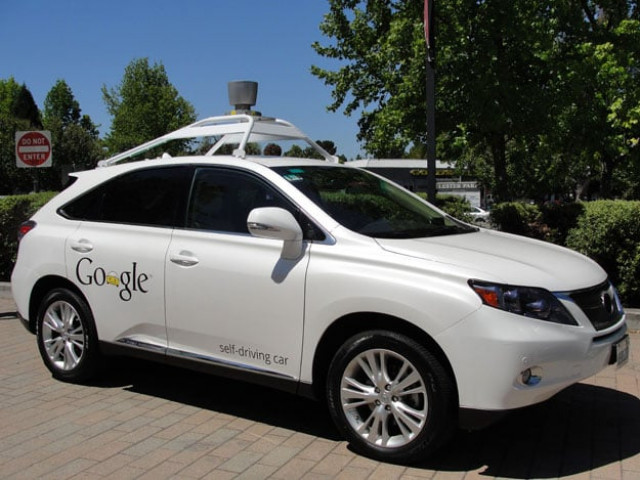Switzerland's first driverless car hits Zurich roads
The Volkswagen Passat has been equipped with sensors, computers and special software

File picture taken May 13, 2014 shows a Google self-driving car in Mountain View, California. PHOTO: AFP
The Volkswagen Passat, which began road tests last week that will end on Thursday, has been equipped with sensors, computers and special software.
"Swisscom is interested in the digitisation of the economy," company official Christian Petit told reporters, showing the vehicle to the press for the first time.
Read: Going green: Honda launches its first hybrid car in Pakistan
"Swisscom is not turning into a car manufacturer. But future innovations in the automotive industry will centre on networking with the environment. For this reason, the driverless car is a prime example of digitisation and therefore of great interest to us," he said in a statement.
Read: Google to build self-driving cars with no steering wheel

PHOTO: AFP
The computer drives, steers and brakes the car and uses laser scanners, radar and video cameras to detect nearby vehicles and pedestrians and road users.
The software is used to issue driving commands and analyse data.
The project also involves Germany's AutoNomos Labs, which has run similar tests in Berlin.

PHOTO: AFP
Read: Local talent: NUST students unveil racing car for Formula Student competition in UK
The test Passat has two people in it as a precautionary measure, just in case a driver has to take over.
Driverless cars are being tested in several European countries including Britain and in US cities, including by Internet giant Google.



















COMMENTS
Comments are moderated and generally will be posted if they are on-topic and not abusive.
For more information, please see our Comments FAQ